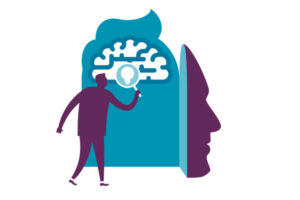October 9, 2023

Get home care assistance to help after a traumatic brain injury.
It’s no secret that the brain is the most imperative, most intricate organ in the body. It is in control of everything. It works behind the scenes, making sure we stay alive, and, in the foreground as the home of our cognizance. That’s why it’s such a major concern when someone suffers from a traumatic brain injury.
At Continuum, we believe that learning about the possible traumatic brain injury signs in relation to the area in the brain where the injury occurred can help families better understand and make more informed decisions relating to their loved one’s care.
What Does Each Area of the Brain Do—and How Can an Injury Impact It?
Cerebellum: Our movement, balance and coordination are controlled by the cerebellum. A cerebellum injury can cause someone to lose the ability to do things that necessitate coordination, such as walking, talking, or reaching out to pick up something. It can also cause tremors, dizziness and/or slurred speech.
Parietal Lobe: The parietal lobe controls how we comprehend language, our spatial awareness, sense of touch, time, and visual perceptions. When this portion of the brain is damaged, people might encounter problems with reading, the inability to draw or name objects, difficulty differentiating left from right, difficulty with math, and an unawareness of or neglect of certain body parts. They will also commonly have problems with hand-eye coordination.
Frontal Lobe: Our personality, intelligence, and emotions are housed in the frontal lobe. It is the region of the brain that controls concentration, makes judgments, and solves problems. It also controls body movement, including speech and writing. The effects of a frontal lobe injury can include changes and/or difficulty with the core functions controlled by the frontal lobe plus more subtle manifestations of the core functionality, including a lack of inhibition, an impaired sense of smell, vision loss, persistence of a single thought, and mood swings.
Brain Stem: The brain stem regulates the basic mechanism of life, including heart rate, respiration, digestion and blood pressure. It is the home of the startle response and reflex emotions, wake and sleep cycles, and our ability to sneeze, cough, vomit, and swallow. Brain stem damage can lead to issues with all of these basic mechanisms, including affecting speech, due to a decreased capacity for breathing.
Occipital Lobe: The occipital lobe is in charge of our sight. The results of an occipital lobe injury may include vision problems, such as blurred vision or blind spots, hallucinations, visual illusions, the inability to recognize the movement of an object, or difficulties with reading and writing.
Temporal Lobe: The temporal lobe is the home to our language comprehension, memory, hearing, learning, and sequencing. It allows us to recognize faces and generates feelings. The effects of a temporal lobe injury can include problems with key functions as well as changes in sexual behavior, persistent talking (particularly with right lobe damage) and increased aggression.
While the brain is made up of multiple complex parts, it functions as one unit. Challenges with behaviors or functions can cascade, as can accomplishments attained through rehabilitation. If you have a loved one with a traumatic brain injury and could use help with care due to the behavioral or physiological effects of the person’s trauma, Continuum can help.
Contact our in-home caregiving team to schedule your free care consultation or at 314-863-9912 to learn more about our services in St. Louis, Kirkwood, Clayton, and the surrounding areas.
